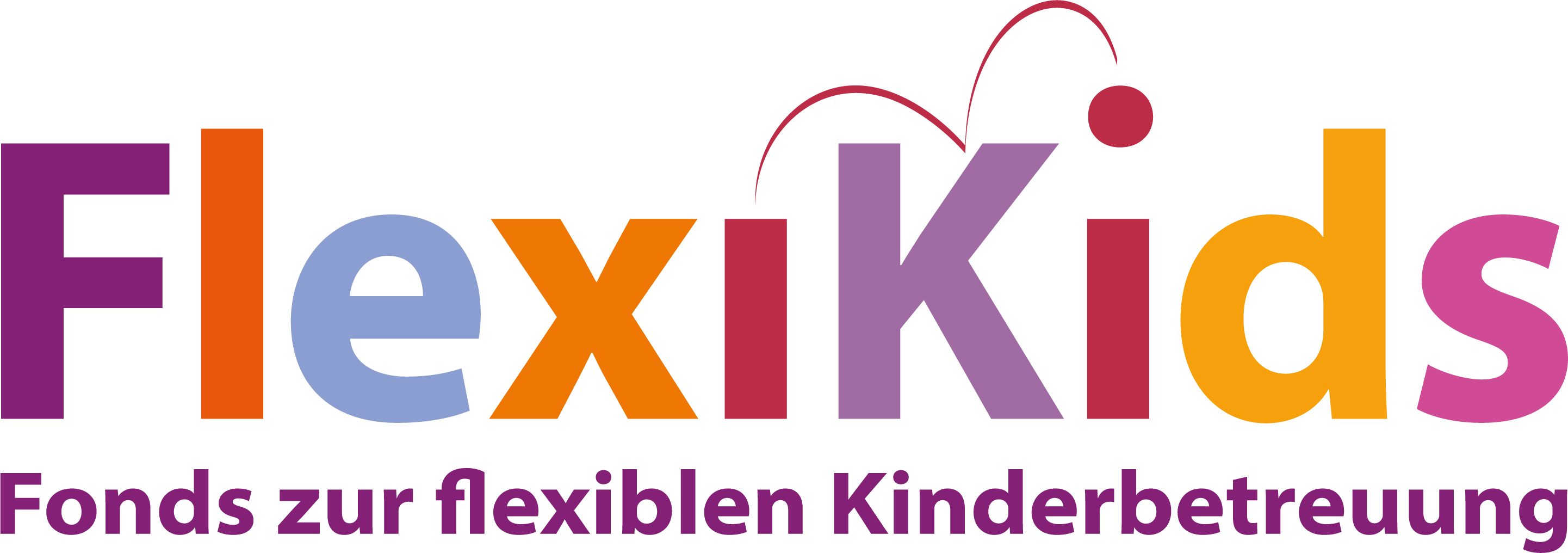Equal Opportunities Council

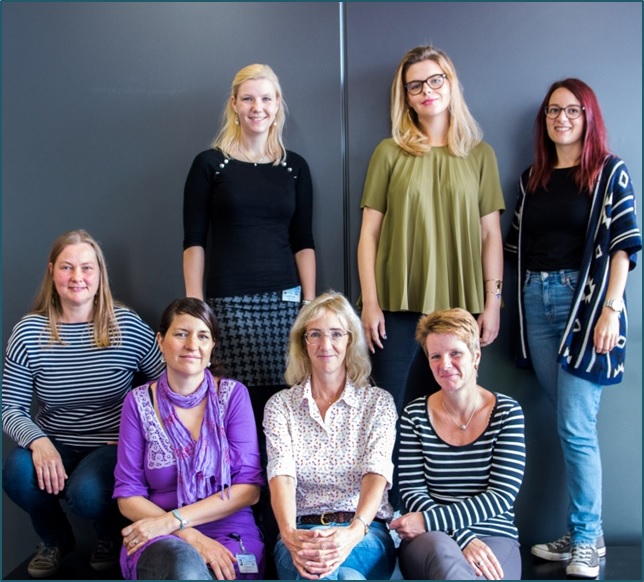
The reasons for unequal opportunities are manifold. For example, stereotypical everyday knowledge about gender is also constantly reproduced in science and research and has become firmly inscribed in the structures of the scientific community. The traditional structures of recruiting young scientists and the common short-term fixed-term contracts also have a gender-specific differentiating effect and are disadvantageous for female scientists. Another reason for the underrepresentation of female scientists is the greater social strain still placed on women by family responsibilities. A better offer of childcare and other measures to reconcile family and work is therefore of great importance. These gender equality tasks are coordinated in the Department of Life Sciences by the Equal Opportunities Council.
In Faculty 15 there is not a single Equal Opportunities Officer, but a team of different status groups who together form the Equal Opportunities Council; including female professors, scientific staff, technical-administrative staff and students. The women's representation elects the members of the Equal Opportunities Council for a period of two years.
Since the preservation and promotion of equality is an important concern for the department, it was decided to establish a permanent responsibility for equality in the dean's office with the vice dean, in addition to the women's council (Equal Opportunities Council) at that time.
We as the Equal Opportunities Council represent the interests of the individual status groups and ensure equal opportunities in recruitment and appointment procedures. In addition, we support women in reconciling family and studies or career. Furthermore, we offer help and support in conflict resolution and in cases of sexual harassment in courses and at the workplace.
The Equal Opportunities Council is happy to support the professional qualification of women. If you have any questions regarding the application or financial support and processing, or if you have any questions regarding the content of the application, please contact Prof. Dr. Averhoff (T: +49 69 798-29509). You can find further information on submitting applications under "Financial Support".
In addition to these contact persons at the faculty (Email), the staff in the Equal Opportunities Office of Goethe University will be happy to assist you.
Die Goethe-Universität hat ihre bisherigen Gleichstellungsstrategien um Diversity Policies erweitert. Leitmotive sind, Diskriminierung zu vermeiden und Chancengleichheit herzustellen. Der Begriff Diversity Policies unterstreicht, dass die Goethe-Universität Veränderungen auf allen Ebenen der Organisation anstrebt.
Further information:
- Goethe-University Diversity Policies: Concepts and Guidelines
- Publications of the Equal Opportunities Office
- Diversity in Study & Teaching at Goethe-University
- Goethe-University Equal Opportunity Office
- Anti-Discrimination at Goethe-University
Parent-child-room
The premises of the Biologicum include both changing rooms and a parent-child room. We can also provide you with information on childcare at the Goethe University in Frankfurt.
The parent-child room of the Biologicum is located in wing B, basement, room -1.204 and is accessible to all employees of the working groups located in the Biologicum via their Goethe Card. Notice of use to the Council for Gender Equality is not necessary.
Students with children who are not assigned to a working group and therefore do not have access to the room are welcome to contact Leon Fischer (Room 1.320, T: +49 69 798-42100, Email) if they wish to use the room and have their access set up accordingly via their Goethe Card. Please note that activation may take a few days. If you wish to use the room spontaneously, we recommend that you contact our Biologicum members by telephone or ask the doorman to open the room.
The MobiKiz
The "MobiKiz" has been available at the Faculty of Biosciences since June 2014. The MobiKiz is a portable children's playroom with various age-appropriate toys and can be borrowed during your stay at the University. The MobiKiz is of course free to borrow, but you should make sure that it is returned in full so that other children can continue to play with it.
In the Biologicum, the MobiKiz can be borrowed in the Didactics Department in room -1.412. A prior appointment is not absolutely necessary, but would be desirable (+49 69 798-42270).
Another MobiKiz is available at the Otto-Stern-Zentrum (OSZ) at the doorman's office and can be borrowed there during regular working hours
On the homepage of the Goethe University Family Service you will find more information about flexible and regular childcare.
The "Frauenförderfond" is available for measures to promote women in studies and science and to reconcile family and studies/work. Applications for financial support can be submitted to the Equal Opportunities Council, e.g. to support childcare or travel costs for participation in academic conferences and excursions or to finance professional development courses. If you have any questions about the general conditions and the application process, please contact Prof. Dr. Averhoff (T: +49 69 798-29509). Further information can be found in the application form, including instructions on how to apply.
Guidelines for applying for financial support
Please note the new guidelines for applying for financial support from the Equal Opportunities Council. Financial support for non-gender-specific applications (e.g. participation in conferences) is only possible with a simultaneous or previous application to another institution, as our financial framework is very limited. Furthermore, the application for financial support for a conference participation is only possible with active participation in the form of a poster presentation and/or a lecture by the applicant. Please refer to the application form for further information and conditions.
The maternity protection portal of Goethe University offers information to all pregnant and breastfeeding mothers, supervisors and those responsible for implementation.
Of course, reporting a pregnancy is always voluntary due to the right to informational self-determination. However, it is advisable to report it as early as possible, as only then special protective measures can be taken.
Pregnant students are entitled to maternity protection periods during their studies. The contact person for pregnant students at the Department of Biosciences is Dr. Anna Wittekindt - please contact her for advice and to clarify possible risks and necessary protective measures in courses (especially laboratory practicals) at an early stage.
In individual cases and to a limited extent, it is possible for pregnant employees to submit an application to the Equal Opportunities Council to hire a student assistant (Studentische Hilfskraft) for work in the laboratory for hazardous activities during pregnancy (see Financial Support).
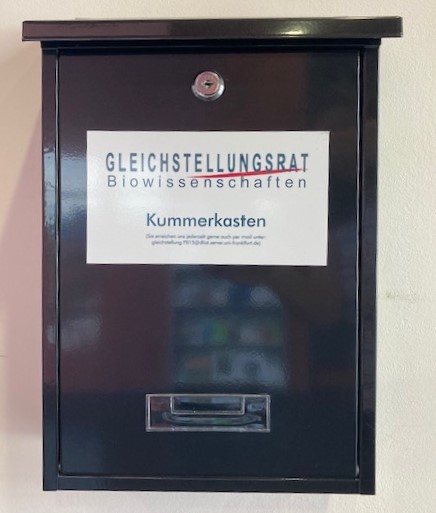
Messages can be left with or without contact details.
Since an attack on an employee in 2012, an accompanying service has been available to the departments of the Uni Campus Riedberg. This service can be used from Monday to Friday between 7 p.m. and 11 p.m. to be picked up from the building accompanied by a security guard and taken to the train/car. You can contact the service directly at 0151 - 56698909 or at the reception of the Biozentrum (069 - 798 29108).
News
The Covid19 pandemic has dominated all areas of private and public life for over two years now and defined the everyday life and career opportunities of scientists. A study published by Nature Publishing Group in 2020 showed that the pandemic impact depends strongly on the scientific field, where – unsurprisingly – the laboratory-linked life sciences suffered the most. Moreover, this and other studies have demonstrated that the disadvantages were most pronounced for female scientists, especially those with children, as well as caregivers.
As a result and in order to fight against systemic and implicit discrimination, calls for more support and inclusion aimed at scientific journals, the scientific community, and funding agency have increased – some already providing sound scientific data supporting the measures' success. A career feature article published in Nature in the summer of 2020, highlighted advice about career-furthering strategies for female scientists.
Furthermore, early career researchers in the natural sciences have been disproportionately negatively impacted by the pandemic in the medium and long term, which thankfully lead to multiple prominent voices in academia to speak about increasing support for young scientists in the future and thus counteracting and resulting disadvantages (1,2).
In order to combat future problems arising in our field as well as to preserve the recent advances in diversity, equity, and inclusivity - during and after the pandemic - we, the Equality Council, will continue to support all students and faculty, especially female scientists and caregivers, at each level of their educational and career journeys.
Your Equality Opportunities Council "Biosciences"
(Juli 2022)
Representatives
We are here for you!
EqualityFB15
Professors |
||
Frau Prof. Dr. Jasmin Hefendehl Institut für Zellbiologie und Neurowissenschaft T: +49 69 798-42079 |
||
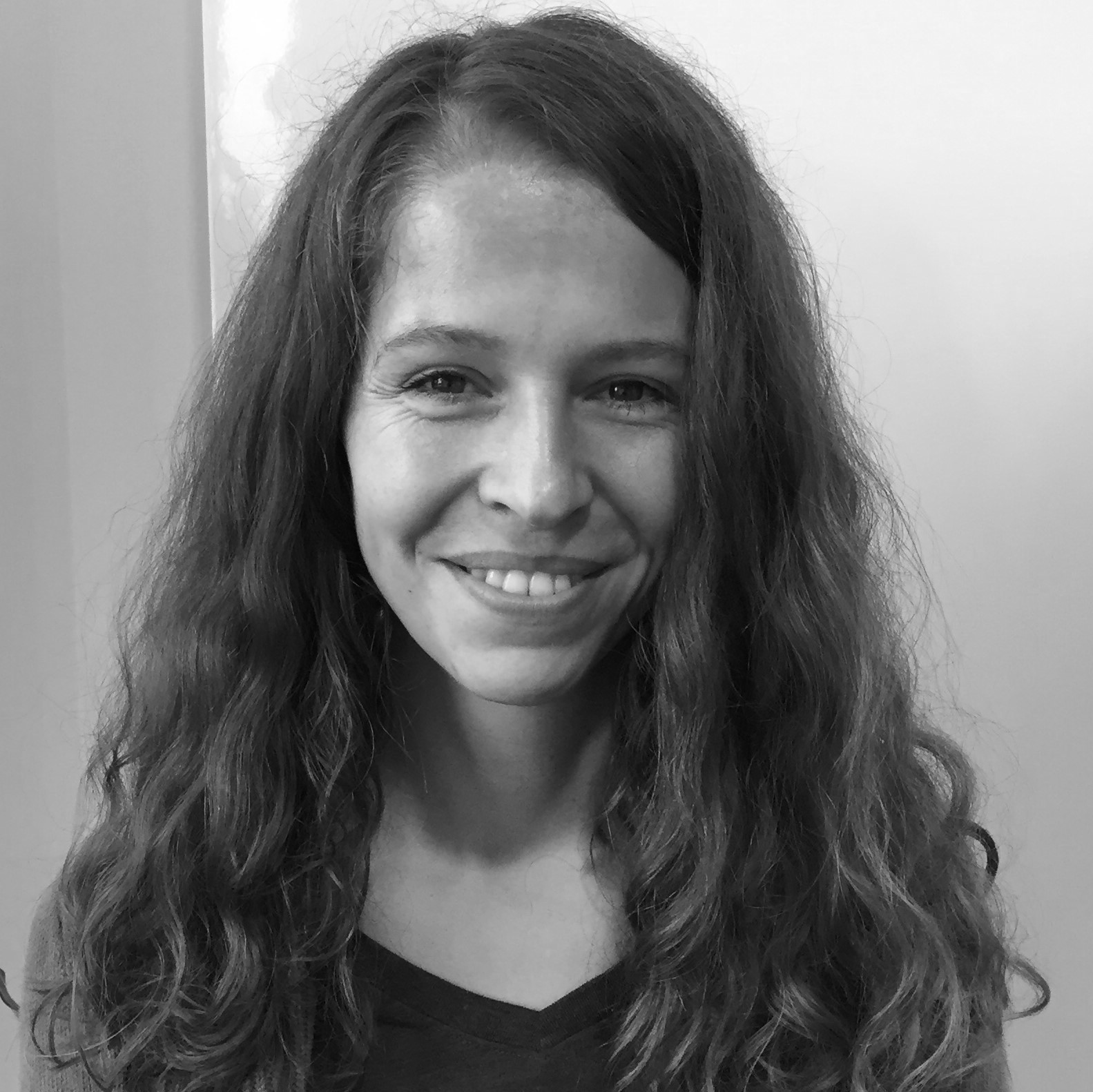 |
Frau Jun. Prof. Dr. Lisa Schulte Institut für Ökologie, Evolution und Diversität T: +49 69 798-42204
|
|
Research Assistants |
||
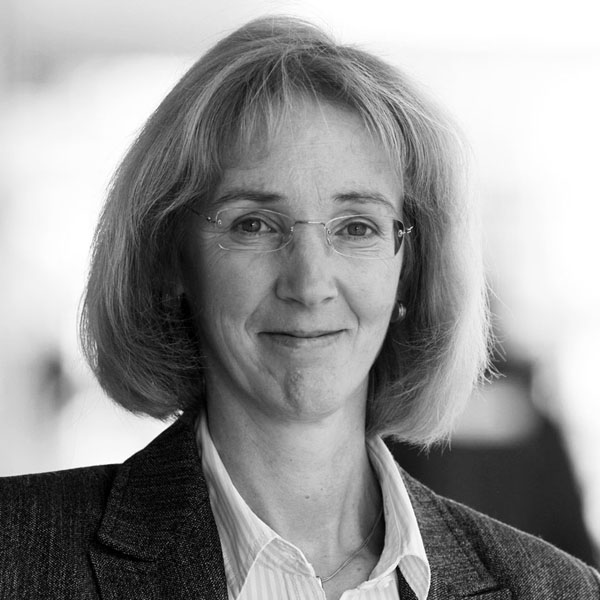 |
Frau Apl. Prof. Dr. Beate Averhoff Institut für Molekulare Biowissenschaften T: +49 69 798 29509 |
|
 |
Frau Delia Hof Institut für Ökologie, Evolution und Diversität T: +49 69 798-42151 |
|
| Frau Dr. Bettina Kirchmaier Institut für Zellbiologie und Neurowissenschaften T: +49 69 798-42002 |
||
Technical-administrative employees |
||
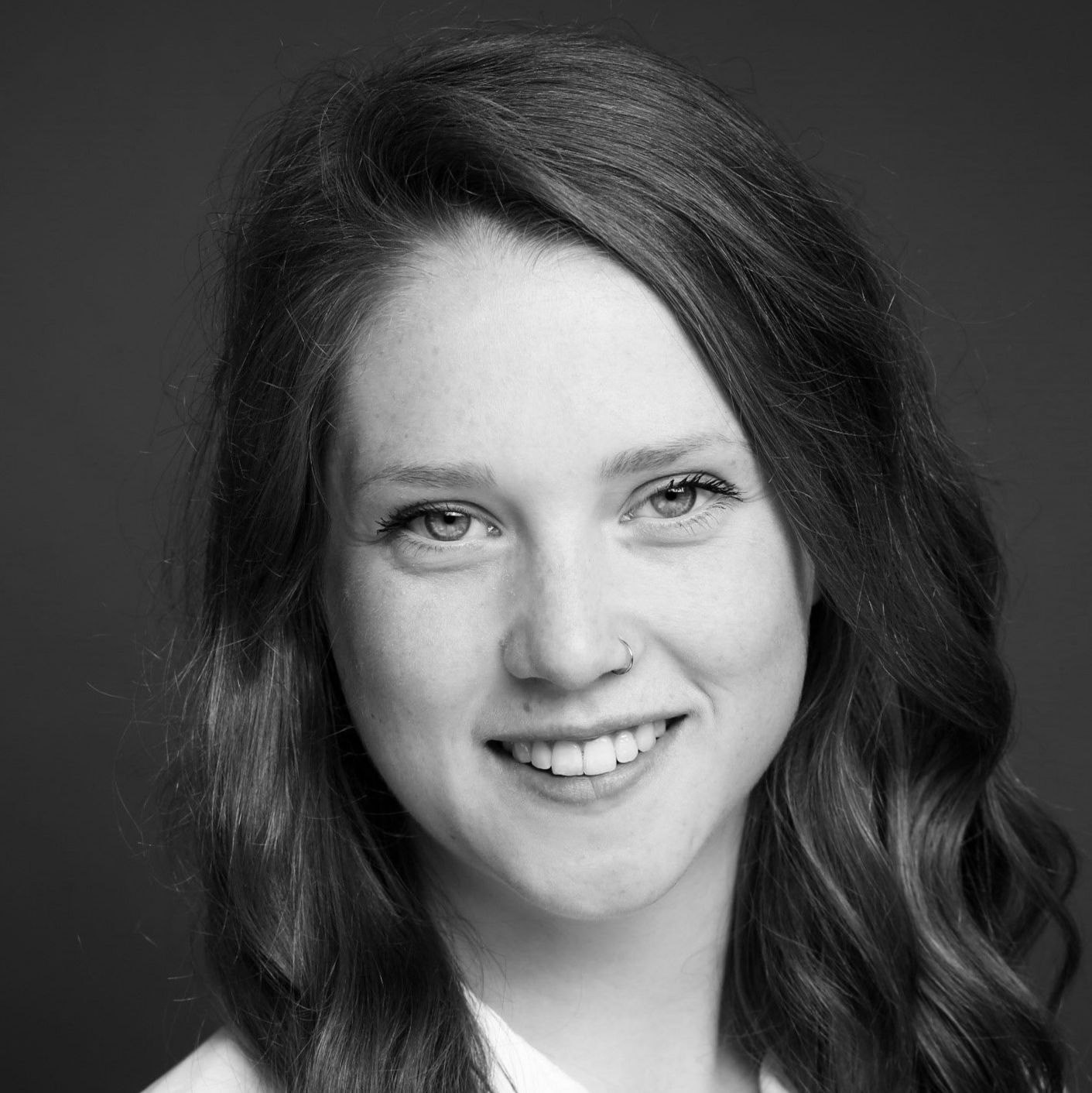 |
Frau Lena Fleckenstein Institut für Ökologie, Evolution ud Diversität T: +49 69 798-42129 |
|
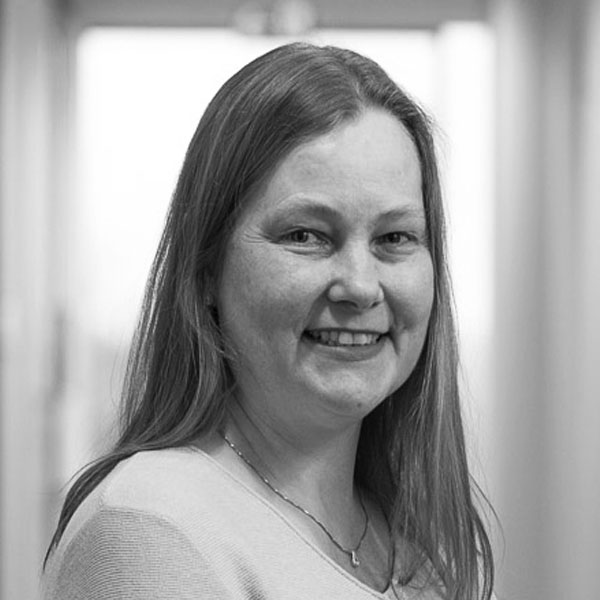 |
Frau Gisa Prange Institut für Zellbiologie und Neurowissenschaft T: +49 69 798-42048 |
|
Students |
||
|
Frau Anna Pietsch |
||
|
Frau Melosha Puspathasan | ||
- Studying at Goethe University
- International applicants
- Faculties
- Overview of study programmes
- Programme for refugees
- GRADE
- Goethe Business School (continuing education)
- Research at Goethe University
- Scientific news
- Goethe Welcome Center (for international researchers)
- Collaborative research projects
- Individual research
- Visiting fellowships
- Endowed chairs
- About the University
- News-in-brief
- University administration
- Campus locations
- Campus life
- University archives (German)
- Rhine-Main-Universities
